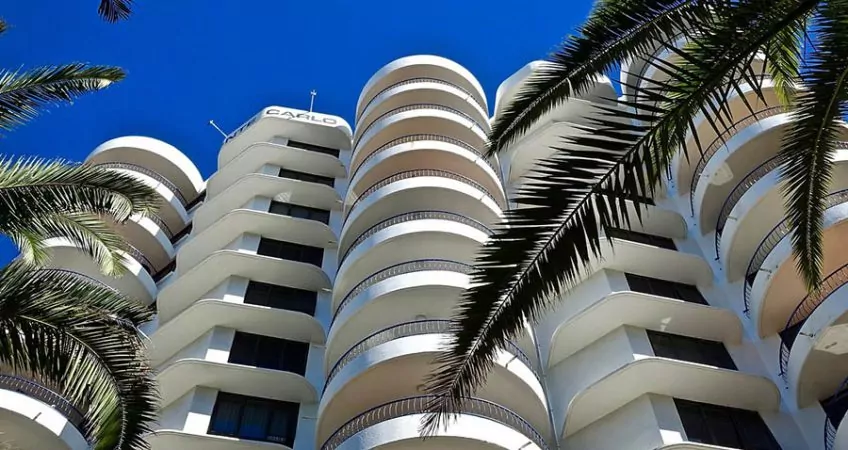
Sizing-Up The Real Estate Market In Costa Rica and Panama
Look What These Mad Men Have Done In Costa Rica
In Guanacaste, Costa Rica, last week for meetings with the new builder I’ve engaged for my Los Islotes community on Panama’s Azuero coast, I couldn’t help but compare Costa Rica, specifically this Pacific coast region, with Panama and its various coastal communities.
Costa Rica is perhaps the most recognized option for Americans thinking about retiring or investing in a second home overseas. This is no accident.
In the early 1980s, somebody in a position of power in Costa Rica had a genius idea that turned out to be the start of an industry. Costa Rica’s tourism agency hired a Madison Avenue ad firm to create a marketing campaign that would, over the decade to follow, position this country as the gold-standard overseas retirement haven.
The powers that were in Costa Rica recognized that American retirees had something they very much wanted a piece of—disposable U.S.-dollar income. The Mad Men Costa Rica engaged did their thing, and tens of thousands of American retirees and second home buyers flowed into the Switzerland of Central America (one of the many slogans associated with the effort) in the years to follow… bringing their Social Security, pension, and investment income with them.
Costa Rica was the first country to cop on to this strategy, and it was years before any other picked up on it in anything like as aggressive or effective a way.
As a result, Costa Rica enjoyed a boom in tourism, real estate development, and North American expats that carried on through the late 1990s.
Panama Takes A Page Out Of Costa Rica's Playbook
Panama, by comparison, didn’t need to think about such outside-the-box ideas for expanding its economy. This country did OK with its free zone, its fledgling banking industry, and the tens of thousands of American soldiers spending their paychecks in Panama City.
It wasn’t until 1999 when all those soldiers and their money left the country that Panama had to think about how to grow its revenues. The country fell into a recession for a few years after the U.S. military decamped.
Looking around for ways to replace the dollars they’d lost, they took a page from Costa Rica’s play book and began working in earnest to attract North American tourists, investors, and retirees.
In the 15-plus years since, Panama has been catching up. Panama received 2.5 million tourists in 2015 and double the amount of foreign income earned by Costa Rica from the 2.6 million who visited that country last year.
Meantime, Costa Rica has changed the rules for its famous pensionado visa, making it less attractive for foreign retirees… this as the competition among countries vying for foreign retirees’ business has heated up. Today, it’s not only Panama who’s working hard to attract the attention of North American retirees shopping their options. Belize, Ecuador, Nicaragua, Colombia, and the Dominican Republic are all hot on this trail, as well.
Nevertheless, real estate sales in Costa Rica are robust. A real estate agent I met with in Guanacaste last week reported that his sales have remained strong into the current “green” season. (This is another marketing angle some clever Mad Man came up with. Costa Rica no longer has a rainy season; it has a green season.)
One interesting thing about the property market in Costa Rica today is that most buyers, at least in the Guanacaste area, are investors rather than residents. They are looking to buy with the intention of spending a few weeks a year in the property on vacation. The rest of the year, they want to be able to rent the place out… meaning rental returns and tourism figures are important.
In Panama, the beach community real estate markets are more balanced between investors and end-users.
Before the 2008 global crisis, property prices in Costa Rica were higher than in Panama across the board, apples to apples (that is, comparing comparable properties in comparable settings).
Choosing Your Market For Investment
Today, the difference isn’t as clear-cut. The markets in each country have developed differently.
The prospective investor today is choosing between a more mature market where the quality of service and a quantity of options have been established (Costa Rica)… and a market that is still developing and expanding (Panama).
Both of these markets provide good real estate investment options, but my expectations for overall appreciation and profit favor Panama. Costa Rica is a mature market that will continue to attract visitors thanks to decades of momentum and PR… while, in many ways, Panama beyond Panama City and the nearby City Beaches area are still just getting going.
Again, my money is on Panama.
Lief Simon
“Lief, you mentioned in a recent post that an IBC is wrong for holding property in Belize for Americans.
“If that’s the case, what would be the best entity to hold a Belizean rental property with positive cash flow?”
B.M.
Belize offers two types of corporations.
A Belize IBC (International Business Corporation) cannot do business in Belize and therefore is guaranteed not to be taxable in Belize.
In addition, Belize offers what it calls a “250 corporation,” which is a “local” Belize corporation for doing business in Belize.
When I mentioned that I do not recommend holding a Belize rental property in a Belize corporation, I was referring to a 250 corporation.
I recommend holding a Belize rental property in either a non-Belize entity or a Belize LLC. Using a 250 corporation to hold an asset generating passive income can create potential U.S. tax liabilities.



